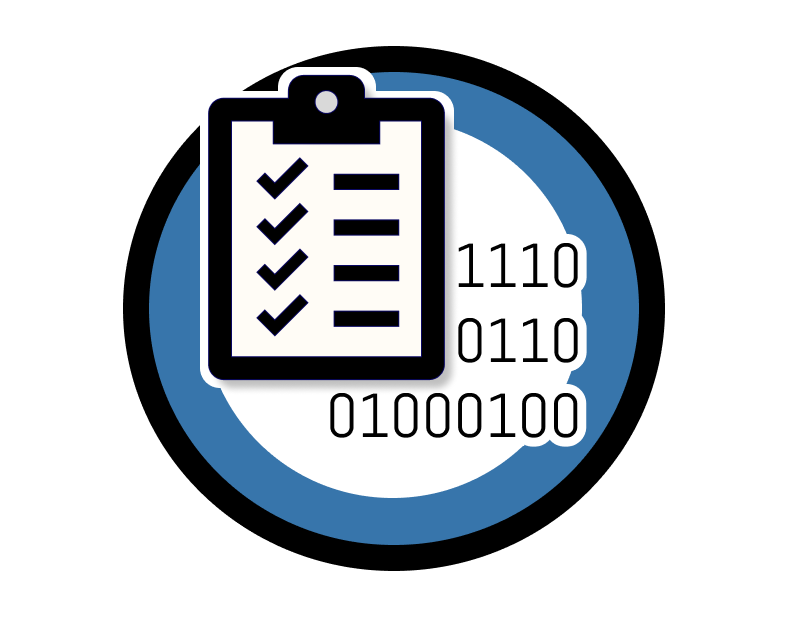The NVD is the U.S. government repository of standards based vulnerability management data represented using the Security Content Automation Protocol (SCAP). This data enables automation of vulnerability management, security measurement, and compliance. The NVD includes databases of security checklist references, security-related software flaws, product names, and impact metrics.
For information on how to cite the NVD, including the database's Digital Object Identifier (DOI), please consult NIST's Public Data Repository.
Legal Disclaimer:
Here is where you can read the NVD legal disclaimer.
-
CVE-2023-52849 - In the Linux kernel, the following vulnerability has been resolved: cxl/mem: Fix shutdown order Ira reports that removing cxl_mock_mem causes a crash with the following trace: BUG: kernel NULL pointer dereference, address: 0000000000000044 [.... read CVE-2023-52849
Published: May 21, 2024; 12:15:22 PM -0400V3.1: 5.5 MEDIUM
-
CVE-2023-52850 - In the Linux kernel, the following vulnerability has been resolved: media: hantro: Check whether reset op is defined before use The i.MX8MM/N/P does not define the .reset op since reset of the VPU is done by genpd. Check whether the .reset op is... read CVE-2023-52850
Published: May 21, 2024; 12:15:22 PM -0400V3.1: 5.5 MEDIUM
-
CVE-2023-52852 - In the Linux kernel, the following vulnerability has been resolved: f2fs: compress: fix to avoid use-after-free on dic Call trace: __memcpy+0x128/0x250 f2fs_read_multi_pages+0x940/0xf7c f2fs_mpage_readpages+0x5a8/0x624 f2fs_readahead+0x5c/0x... read CVE-2023-52852
Published: May 21, 2024; 12:15:22 PM -0400V3.1: 7.8 HIGH
-
CVE-2023-52812 - In the Linux kernel, the following vulnerability has been resolved: drm/amd: check num of link levels when update pcie param In SR-IOV environment, the value of pcie_table->num_of_link_levels will be 0, and num_of_levels - 1 will cause array ind... read CVE-2023-52812
Published: May 21, 2024; 12:15:19 PM -0400V3.1: 7.8 HIGH
-
CVE-2023-52818 - In the Linux kernel, the following vulnerability has been resolved: drm/amd: Fix UBSAN array-index-out-of-bounds for SMU7 For pptable structs that use flexible array sizes, use flexible arrays.
Published: May 21, 2024; 12:15:19 PM -0400V3.1: 7.8 HIGH
-
CVE-2023-52826 - In the Linux kernel, the following vulnerability has been resolved: drm/panel/panel-tpo-tpg110: fix a possible null pointer dereference In tpg110_get_modes(), the return value of drm_mode_duplicate() is assigned to mode, which will lead to a NUL... read CVE-2023-52826
Published: May 21, 2024; 12:15:20 PM -0400V3.1: 5.5 MEDIUM
-
CVE-2021-47388 - In the Linux kernel, the following vulnerability has been resolved: mac80211: fix use-after-free in CCMP/GCMP RX When PN checking is done in mac80211, for fragmentation we need to copy the PN to the RX struct so we can later use it to do a compa... read CVE-2021-47388
Published: May 21, 2024; 11:15:24 AM -0400V3.1: 7.8 HIGH
-
CVE-2021-47390 - In the Linux kernel, the following vulnerability has been resolved: KVM: x86: Fix stack-out-of-bounds memory access from ioapic_write_indirect() KASAN reports the following issue: BUG: KASAN: stack-out-of-bounds in kvm_make_vcpus_request_mask+... read CVE-2021-47390
Published: May 21, 2024; 11:15:24 AM -0400V3.1: 7.1 HIGH
-
CVE-2021-47409 - In the Linux kernel, the following vulnerability has been resolved: usb: dwc2: check return value after calling platform_get_resource() It will cause null-ptr-deref if platform_get_resource() returns NULL, we need check the return value.
Published: May 21, 2024; 11:15:26 AM -0400V3.1: 5.5 MEDIUM
-
CVE-2021-47413 - In the Linux kernel, the following vulnerability has been resolved: usb: chipidea: ci_hdrc_imx: Also search for 'phys' phandle When passing 'phys' in the devicetree to describe the USB PHY phandle (which is the recommended way according to Docum... read CVE-2021-47413
Published: May 21, 2024; 11:15:26 AM -0400V3.1: 5.5 MEDIUM
-
CVE-2024-35929 - In the Linux kernel, the following vulnerability has been resolved: rcu/nocb: Fix WARN_ON_ONCE() in the rcu_nocb_bypass_lock() For the kernels built with CONFIG_RCU_NOCB_CPU_DEFAULT_ALL=y and CONFIG_RCU_LAZY=y, the following scenarios will trigg... read CVE-2024-35929
Published: May 19, 2024; 7:15:48 AM -0400V3.1: 7.8 HIGH
-
CVE-2024-35930 - In the Linux kernel, the following vulnerability has been resolved: scsi: lpfc: Fix possible memory leak in lpfc_rcv_padisc() The call to lpfc_sli4_resume_rpi() in lpfc_rcv_padisc() may return an unsuccessful status. In such cases, the elsiocb ... read CVE-2024-35930
Published: May 19, 2024; 7:15:49 AM -0400V3.1: 5.5 MEDIUM
-
CVE-2024-35933 - In the Linux kernel, the following vulnerability has been resolved: Bluetooth: btintel: Fix null ptr deref in btintel_read_version If hci_cmd_sync_complete() is triggered and skb is NULL, then hdev->req_skb is NULL, which will cause this issue.
Published: May 19, 2024; 7:15:49 AM -0400V3.1: 5.5 MEDIUM
-
CVE-2021-47233 - In the Linux kernel, the following vulnerability has been resolved: regulator: rt4801: Fix NULL pointer dereference if priv->enable_gpios is NULL devm_gpiod_get_array_optional may return NULL if no GPIO was assigned.
Published: May 21, 2024; 11:15:12 AM -0400V3.1: 5.5 MEDIUM
-
CVE-2021-47254 - In the Linux kernel, the following vulnerability has been resolved: gfs2: Fix use-after-free in gfs2_glock_shrink_scan The GLF_LRU flag is checked under lru_lock in gfs2_glock_remove_from_lru() to remove the glock from the lru list in __gfs2_glo... read CVE-2021-47254
Published: May 21, 2024; 11:15:14 AM -0400V3.1: 7.8 HIGH
-
CVE-2024-35902 - In the Linux kernel, the following vulnerability has been resolved: net/rds: fix possible cp null dereference cp might be null, calling cp->cp_conn would produce null dereference [Simon Horman adds:] Analysis: * cp is a parameter of __rds_rdm... read CVE-2024-35902
Published: May 19, 2024; 5:15:11 AM -0400V3.1: 5.5 MEDIUM
-
CVE-2024-35905 - In the Linux kernel, the following vulnerability has been resolved: bpf: Protect against int overflow for stack access size This patch re-introduces protection against the size of access to stack memory being negative; the access size can appear... read CVE-2024-35905
Published: May 19, 2024; 5:15:11 AM -0400V3.1: 7.8 HIGH
-
CVE-2021-47420 - In the Linux kernel, the following vulnerability has been resolved: drm/amdkfd: fix a potential ttm->sg memory leak Memory is allocated for ttm->sg by kmalloc in kfd_mem_dmamap_userptr, but isn't freed by kfree in kfd_mem_dmaunmap_userptr. Free it!
Published: May 21, 2024; 11:15:27 AM -0400V3.1: 5.5 MEDIUM
-
CVE-2021-47422 - In the Linux kernel, the following vulnerability has been resolved: drm/nouveau/kms/nv50-: fix file release memory leak When using single_open() for opening, single_release() should be called, otherwise the 'op' allocated in single_open() will b... read CVE-2021-47422
Published: May 21, 2024; 11:15:27 AM -0400V3.1: 5.5 MEDIUM
-
CVE-2021-47423 - In the Linux kernel, the following vulnerability has been resolved: drm/nouveau/debugfs: fix file release memory leak When using single_open() for opening, single_release() should be called, otherwise the 'op' allocated in single_open() will be ... read CVE-2021-47423
Published: May 21, 2024; 11:15:27 AM -0400V3.1: 5.5 MEDIUM

 ) or https:// means you've safely connected to the .gov website. Share sensitive information only on official, secure websites.
) or https:// means you've safely connected to the .gov website. Share sensitive information only on official, secure websites.



